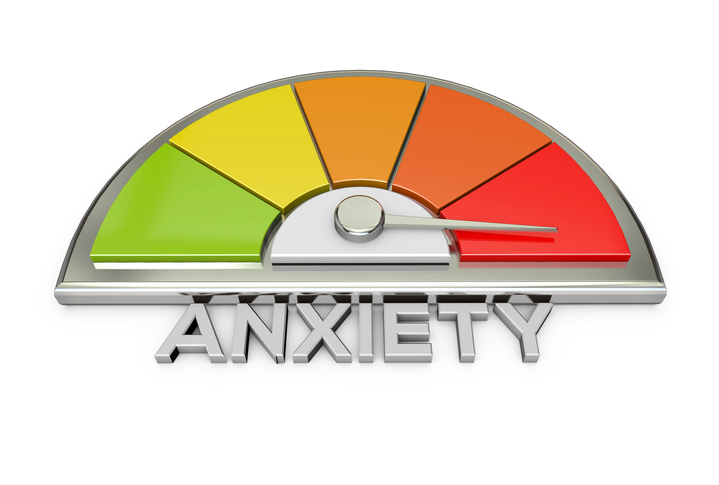To worry about things is a typical way to respond to life’s circumstances. All of us tend to worry or feel nervous from time to time. Anxiety is a normal human reaction to stressful situations. However, for people with anxiety disorders, those worries aren’t temporary. Their anxiety often persists, and can even get worse over time. Anxiety disorders can severely impair a person’s ability to function at work, school, and in social situations. Anxiety can also interfere with a person’s relationships with family members and friends.
Anxiety disorders are common in both adults and children. About 18 percent of U.S. adults and 25 percent of adolescents age 13 to 18 will experience anxiety, according to the National Institute of Mental Health. About 4 percent of adults and nearly 6 percent of teens have anxiety disorders classified as severe.
To be sure, severe anxiety can be debilitating. However, for many people who experience it at more moderate levels it can be helpful, if we are open enough to embrace and reframe it. For a variety of reasons, we engage in a feedback loop with anxiety. Fearing it, and in response, trying to avoid it or push it down, is part of what can make it such a problem for us. A large-scale study from the University of Wisconsin in 2012 demonstrated that how we think about anxiety and stress can change how those feelings impact us. Regardless of actual stress levels, the less harmful you believe the feeling is, the less harmful it will be. Here are three ways to address anxiety in a positive way:
Think of anxiety as a signal
You don’t have to like the experience of anxiety to use it effectively. It’s designed to be uncomfortable, so you pay attention and do what you need to do to make it stop. Much like a baby’s cry, anxiety lets you know there is an issue that needs addressing. The goal is to determine what your anxiety is trying to tell you and take steps to problem solve solutions.
Label the feeling
Many people get anxious about their anxiety. By naming their feeling as anxiety and trusting in their ability to cope with it, they can learn to not like it but accept their experience of discomfort, uneasiness, and better tolerate ambiguity. In this state, you are better equipped to engage in emotional regulation, problem solving, and planning. How you label your experience is 100 percent in your control. You can then hopefully channel anxiety into a resource you can use to your advantage.
Benefit of some anxiety
While an overload of anxiety can be detrimental, it is also problematic to have none. A mild to moderate amount of anxiety promotes optimal functioning, even if the unexpected energy feels like it may throw you off. Anxiety can keep us focused and on our toes. In our noisy, busy lives, it is often simply a call to pay attention to the thing that needs our attention.
Instead of being overtaken by your anxiety, you can choose to partner with it. Not only can you control how you think about anxiety, you can actually change how you experience it.
If you are struggling with anxiety, please call Pike Creek Psychological Center at 302-738-6859.

